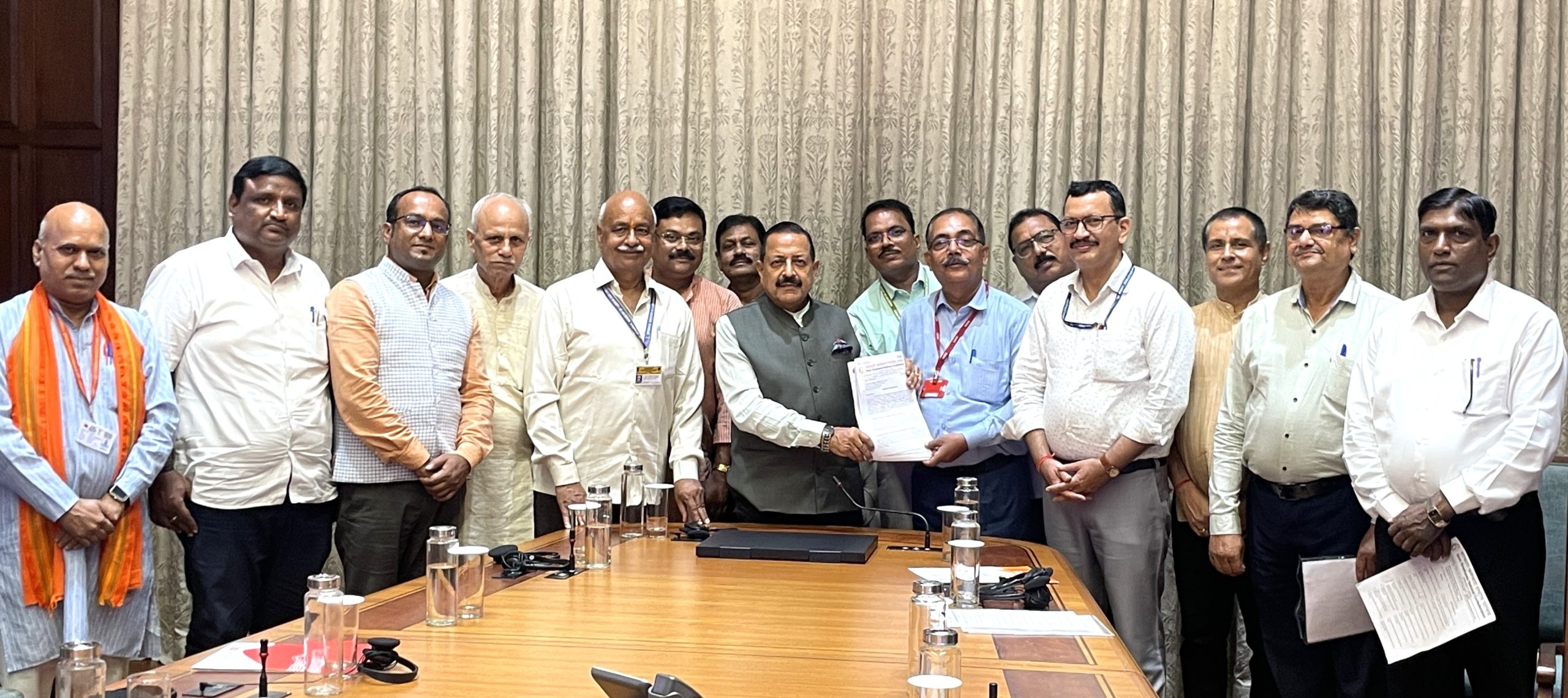
Constructive Dialogue on Employee Welfare and Administrative Reforms
A high-level delegation from the Government Employees National Confederation (GENC) recently convened with Union Minister Dr. Jitendra Singh to address critical service-related concerns of Central Government employees. The meeting, held in New Delhi, focused on resolving long-standing issues such as promotion backlogs, grievance redressal mechanisms, and systemic reforms to enhance workplace efficiency. The GENC representatives emphasized the importance of maintaining open channels between employee organizations and administrative bodies to ensure policies reflect the needs of the workforce. Dr. Singh, who oversees multiple key portfolios including the Department of Personnel & Training (DoPT), expressed willingness to engage with the delegation on ongoing reforms. This interaction underscores the government’s commitment to fostering collaboration with employee unions, particularly as major administrative reviews approach. The discussion highlighted the need for institutional mechanisms to streamline processes and improve transparency in career progression frameworks, which have been a focal point of recent policy initiatives.
Proactive Measures and Employee Morale
The GENC delegation commended the DoPT for its proactive stance in clearing promotion backlogs across various services, a move that has significantly boosted staff morale. By addressing career progression ambiguities, the department has created a more structured environment for employees, reducing frustration and enhancing job satisfaction. The delegation specifically acknowledged the government’s consistent responsiveness to employee concerns under Prime Minister Narendra Modi’s leadership, noting that this approach has fostered a culture of cooperation. Additionally, the representatives highlighted the importance of timely redressal of grievances, which they argue is crucial for maintaining institutional trust. Dr. Singh’s availability for regular meetings with the GENC was praised as a testament to the government’s dedication to listening to employee feedback, ensuring that policy decisions remain aligned with the realities of the workforce.
Policy Inputs and Systemic Reforms
The meeting delved into several key policy areas impacting government employees, including the 8th Pay Commission, rationalization of Central Government Health Scheme (CGHS) benefits, and clarity on Uniform Pension Scheme (UPS) norms. The GENC emphasized the need for reforms that balance administrative efficiency with employee welfare, particularly in light of rising operational costs and evolving service requirements. Discussions also centered on cadre-related issues, which the delegation argued require urgent attention to prevent systemic bottlenecks. Officials noted that the dialogue reflected a broader effort to integrate employee perspectives into policy-making, ensuring that reforms are both practical and equitable. The proposed measures aim to strengthen institutional consultation mechanisms, enabling continuous feedback loops between the government and its workforce. This approach is expected to enhance transparency and accountability, fostering a more collaborative administrative environment.
Significance of the Meeting for Future Reforms
As the government prepares for major administrative reviews, the meeting with the GENC represents a critical step in aligning policy objectives with employee needs. The delegation’s inputs on systemic reforms underscore the importance of addressing long-standing grievances to maintain workforce stability and productivity. By prioritizing issues such as grievance resolution and pension scheme clarity, the government aims to create a more sustainable and responsive administrative framework. The GENC’s role in representing diverse sectors, including defense production and central secretariat staff, highlights the broad impact of these reforms on lakhs of employees. The meeting also reiterated the government’s commitment to regular engagement with employee bodies, ensuring that policy decisions remain informed by frontline experiences. This collaborative approach is expected to strengthen institutional trust and pave the way for more effective administrative reforms in the coming years.




